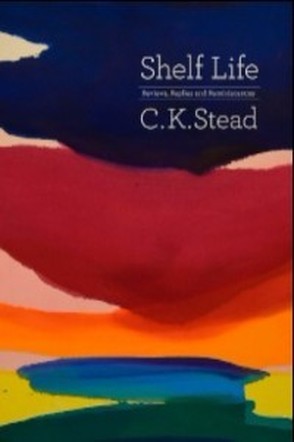
C. K. Stead
C. K. Stead regards himself as a writer first and an academic second. When in 1986 he gave up teaching at university to write full-time as a freelance, he experienced a scary feeling, as though he were “stepping off a secure academic perch into nowhere”.
Now, his mornings are devoted to the serious business of poetry and fiction. In this, his fourth book of literary journalism, Stead has selected another assortment of essays, interviews and opinion pieces which constitute part of what he calls his “afternoon work”. He has clearly found engaging ways of spending his time, and occasionally finds himself in hot water without the “aura of respectability and authority a university chair had seemed to provide.”
Stead is splendidly opinionated. In spite of being the recipient of several of them, he believes that the culture of literary awards is too commercialised, distorts literary values and creates false reputations. He deplores current book reviewing standards as dumbed down, too pictorial and less verbal. He declares that there is no excuse for critics who can’t make themselves understood, and that writing survives if it’s intelligible and contains real intelligence, in both senses of that word.
There are several wide-ranging essays here, including nine which cover aspects of his work on and about Katherine Mansfield. Stead talks about the art, craft and business of writing, and describes himself as an Arthur Lydiard kind of writer – “the more you run/write the better you are at it.” He discusses the David Bain affair, and reasons that the factual innocence of David Bain can’t be established without the blame for the murders being placed on the father Robin without any real evidence against him.
Other pieces describe how he sets about writing novels about real people, or using real people, lightly disguised, as models for his fiction, and how he justifies the small inventions he must inevitably make to accommodate the story. He doesn’t seem to mind if the individuals are recognised, or take offence, and considers it to be “practising the art of fiction, which is always partly an art of voyeurism, spying and theft.”
One of the most intriguing pieces in this book concerns the genesis and structure of the novel My Name Was Judas. Unconvinced by the gospel story of Judas as betrayer of Jesus, and the transformation of the young and gentle Jesus to the threatening, wrathful man he became, Stead set about constructing a more plausible portrayal of the two men. He has done so, not by distorting the gospels but by creating circumstances and a background that gives credence to them.
Stead is crisp, entertaining, sometimes challenging, and clearly not afraid of controversy: “One never knows where the next idea will come from, or where the next thought may lead. One must simply stay alert, and wear a hard hat” – for protection, he later explained in a Listener interview, against the brickbats he might receive for following his instincts and going wherever the story might lead.
Author: C. K. Stead
Publisher: Auckland University Press
ISBN: 978 1 86940 849 7
Available: bookshops

 RSS Feed
RSS Feed
